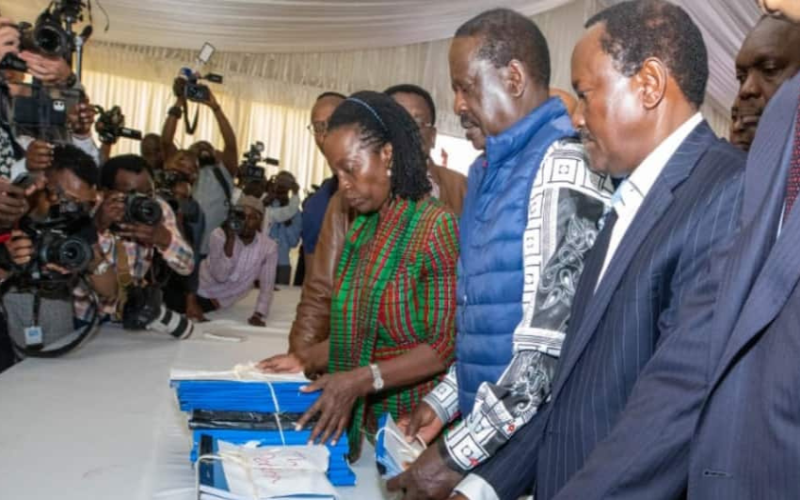
Raila’s petition was dismissed on all nine grounds his legal team had presented as the basis of election irregularity and election illegalities. The Supreme Court unanimously agreed that the evidence submitted was not of such magnitude that would affect the outcome of the election.
The court also cited forgery of documents and sounded a warning to legal practitioners from swearing affidavits on behalf of their clients.
The court also dismissed the allegations that the president-elect did not meet 50%+1 votes, a constitutional requirement for a presidential election. The court dismissed the mathematical formulae used by petitioners in this suit thereby upholding Ruto’s win as legitimate.
On the grounds of Form 34As, the court found that there was no significant disparity between forms transmitted electronically and forms delivered at the Bomas of Kenya by road. According to the seven-judge bench, the disparities were not as significant as to warrant the nullification of an election.
In his petition, Raila also claimed that there was illegal infiltration by the Venezuelans on the IEBC portal in favor of his main opponent William Ruto.
Azimio's team leader also wanted the elections nullified on account of the difference between presidential results and other elective positions. The IEBC answered saying that some voters only vote for the president such as in prisons and in the diaspora.
The court also admitted to having a number of stray ballot papers that were negligible to nullify the outcome of an election.
However, the court found that Chebukati had erred by law by appointing himself Presidential Returning Officer a position that is nonexistent.
The Supreme Court found that the four dissenting commissioners did not produce compelling evidence to show that the tallying and verification process was flawed. The commissioners only walked out at the 11th hour when Mr.Wafula Chebukati was about to announce the president-elect.
On the Postponement of elections in some areas that were purportedly Azimio’s stronghold, the judges ruled that the postponement was not marred with malice but was in fact a genuine mistake on the part of the IEBC. The court ruled that low voter turnout was registered countrywide and no empirical data showed that postponement of the election led to voter suppression.
By Fridah Wangechi | 1 year ago
By Fridah Wangechi | 1 year ago
By Fridah Wangechi | 1 year ago
By Fridah Wangechi | 1 year ago
By Ezra Manyibe | 1 week ago
ODM Postpones Grassroots Elections Indefinitely
Ezra Manyibe | 7 hours ago